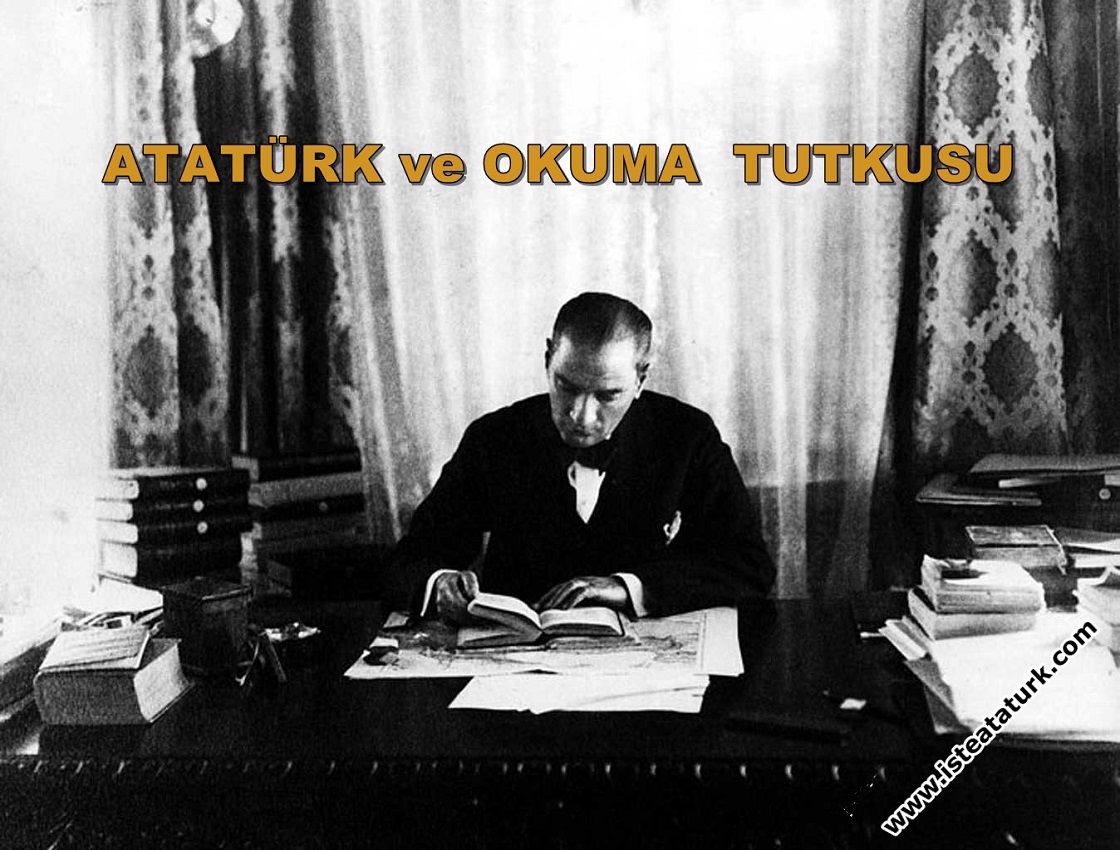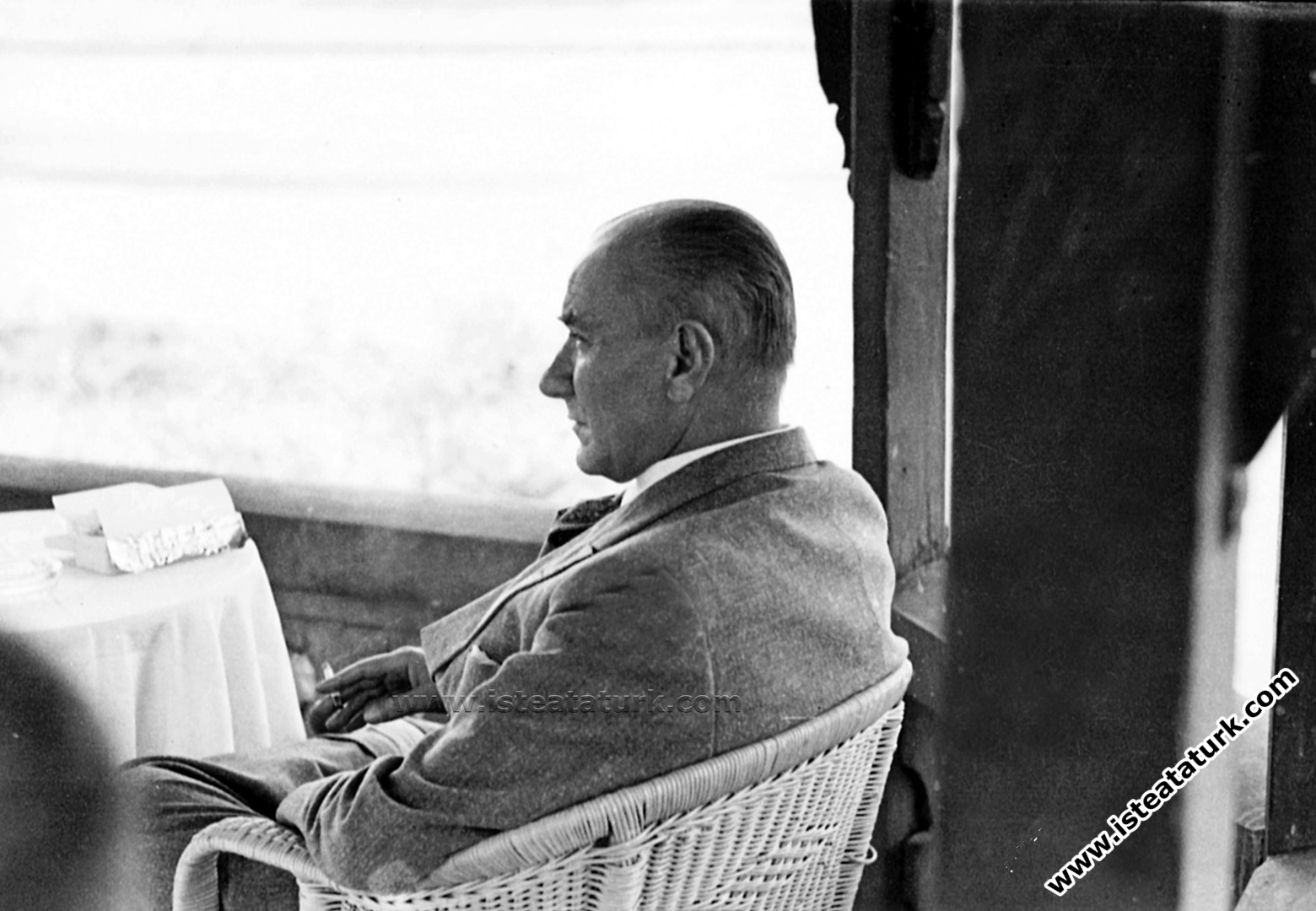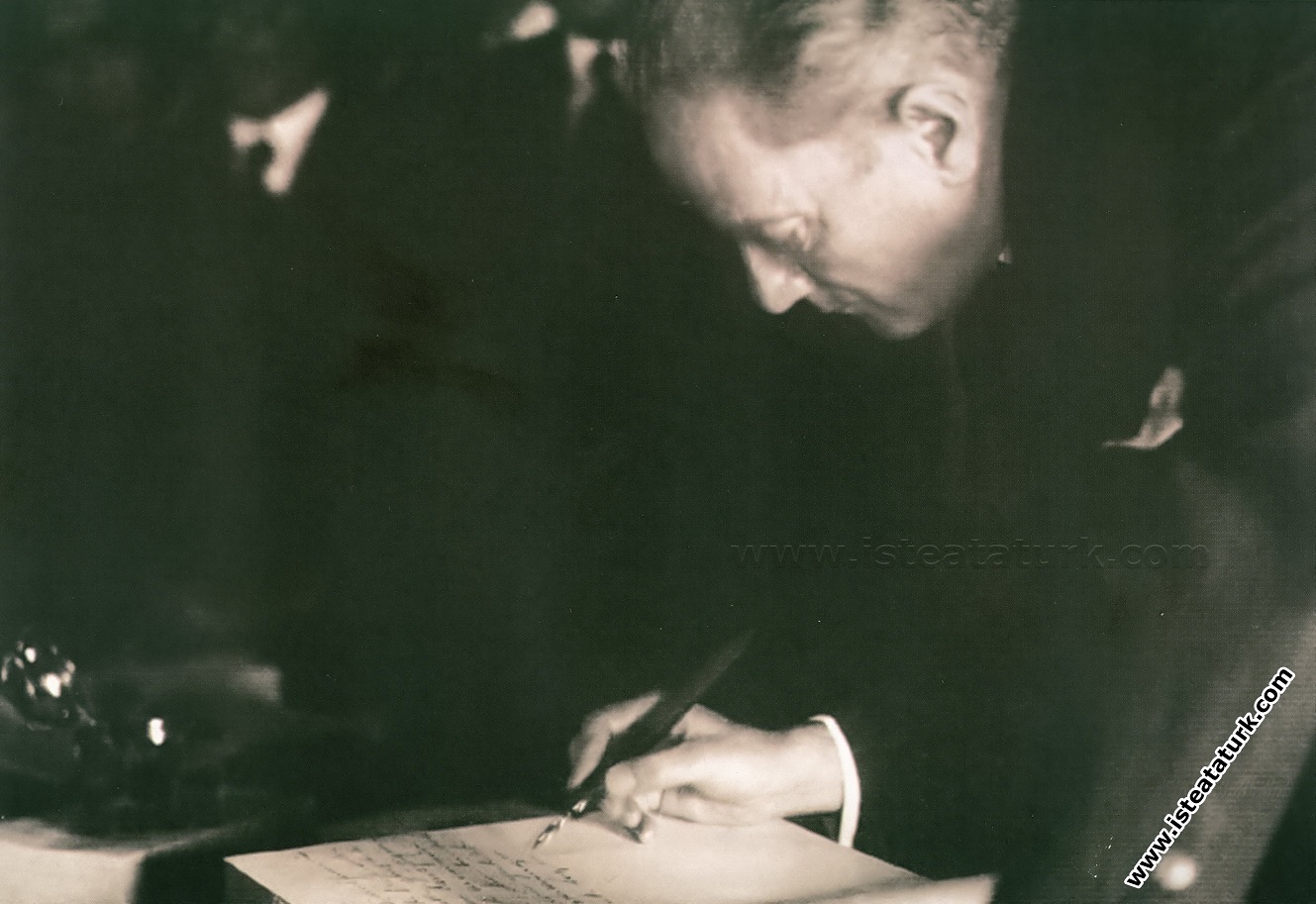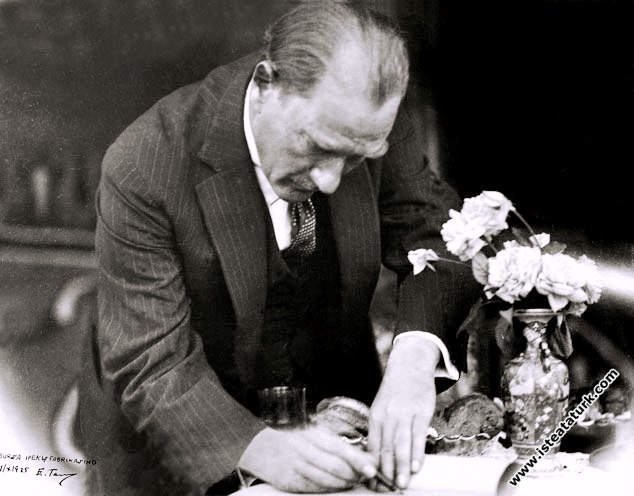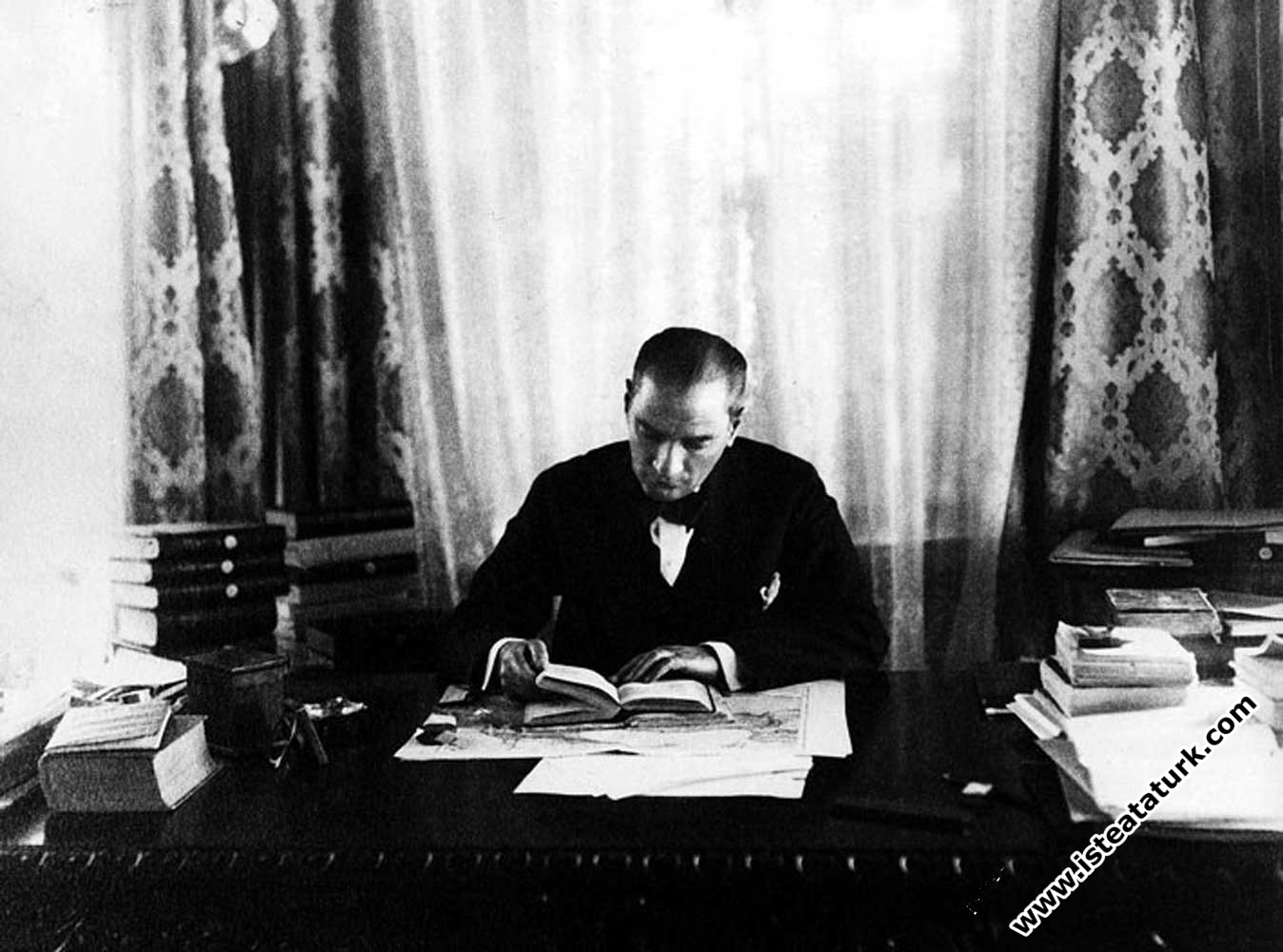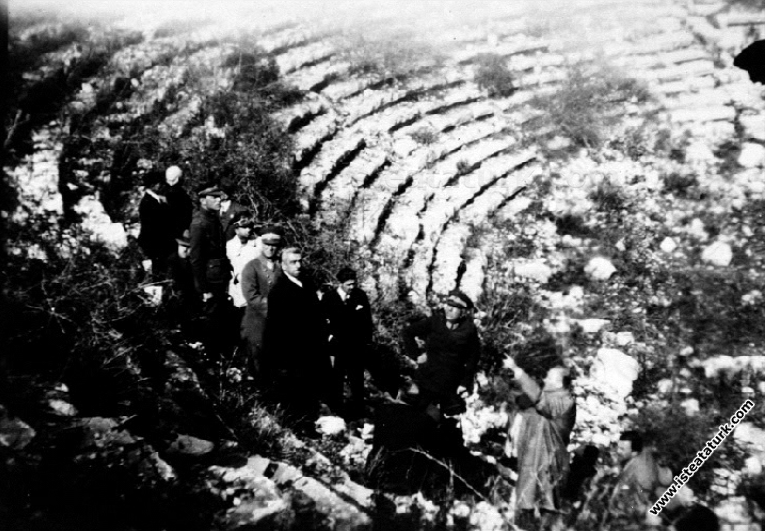
Atatürk's Thoughts on "History Science"
Character Size
"Writing history is as important as making history. If the writer does not remain faithful to the maker, the unchanging truth takes on a nature that will surprise humanity." Mustafa Kemal Atatürk
Atatürk's Thoughts on "Historical Science"
It is observed in Atatürk's life that after the National Struggle period, he increased his efforts to put the history of the Republic of Turkey on a national basis, and therefore he sought to benefit from many sciences. Atatürk, who always looked forward during the National Struggle, turned to the past after establishing his new state, and started to engage in historical science so that the state could be based on solid foundations. In fact, Atatürk had a great interest in history even during his school years, in his youth years. He greatly benefited from his extensive knowledge of history in his achievements in political life.
Atatürk, whom we see as a history creator, saw that historiography was much more difficult, and for this reason, he gathered people he trusted around him and made efforts to save Turkish historiography from chroniclerism and bring it closer to contemporary historiography. That's why;
“Writing history is as important as making history. If the writer does not remain faithful to the creator, the unchanging truth will take on a nature that will astonish humanity.”1 When Atatürk said a contemporary historiography, he certainly did not favor the distortion and falsification of history. “Whenever you have a date in your hands, the sources and documents it is based on are searched in order to be sure whether it is true or not. The reason why we have not been able to have an accurate national history until now is the unfortunateness of our histories, not being able to find any source other than the illogical and illogical statements of some publicists or some self-righteous people, rather than relying on documents from genuine readers. “To create no work, rather than to regret the next day by creating a fabricated work,
Why was Atatürk so sensitive to history or "historical science"? Why did he make great efforts to develop the science of history in our country? The answers to these questions seem to vary widely. Once, Atatürk used the "science of history" as a moral support for the progress and modernization of the state. In other words, after the foundation years of the state, Atatürk found the most reliable means in "history" for the Turkish people to find their identity.
What had to be done for the new Turkish state to find its identity? How could a consciousness of Turkishness be created? Atatürk must have sought the answers to these questions in the science of history: “Our ancestors, who founded great states, also had a great and wide civilization. It is our duty to seek, examine, and inform Turkishness and the world about it.” While doing this, he never wanted the historical facts to be distorted, and for this he said in a letter he wrote to the President of the Turkish Historical Society, Tevfik Bıyıklıoğlu in 1931: “The way to write history must be logical and especially scientific. In this connection, I would like to remind you, who is the head of your high delegation, that you be careful in the new historical sky that you will open to new world horizons. It is better to admit one's inability to produce a work, rather than to be a precious person by creating a summed-up work. Being delusional in the field of science is better than believing the graduates of sluggish institutions. “ 4
The content of a new historical approach in Atatürk was as follows: Turkish history is not just Ottoman history, as it was long thought in the West and in Turkey. In addition, the Ottoman Empire is not a "dynastic" state or a "tribal" state. It is a state founded on the legacy of the destroyed Seljuk State. 5 Therefore, the Seljuk period, which was established before the Ottomans, is an extremely important and bright period in Turkish history. The work does not stay here, but it is based on the Turkish history, which started in Central Asia, in the older history. As such, it is necessary to deal with the histories of these Turks, who had been neglected until then and were informed only by translations from the works of a few European historians.
While creating a sense of Turkishness in his newly established state, Atatürk knew that being a "nation" was a very important factor instead of the idea of "ummah" adopted by the Ottoman Empire. Because he saw that it was essential to reach the stage of becoming a "nation" in order to keep up with modernization, like France and England, which are among the European communities that made great strides in the fields of civilization, democracy, science and technology and reached the stage of becoming the first "nation". Because he knew that the distance on the way to becoming a "nation" and the developments in the field of modernity showed great parallelism.
As it is known, during the Ottoman Empire, history teaching consisted of "Ottoman history", "General history" and "Islamic history". Especially II. Even the Turkism movements seen after the Second Constitutional Monarchy could not ensure that "Turkish history" reaches the desired level in the history books taught in schools.
In addition to this history teaching in the Ottoman Empire, the science of history in Ottoman society for many years consisted of only the collection of documents and the research of events that always gave the desired answer to the same question, and it was not possible to change the dominant Islamic history view.
From the 19th century onwards, a gradual change began in the Ottoman historical understanding and method. It is possible to see the absolute influence of Europe in this change. As a result, we see that new historical methods are used by some historians.
When we come to the 20th century, the Balkan Wars, the First World War and finally the disasters and depressions experienced during the National Struggle have been instrumental in the disappearance of a state and the full establishment of a national consciousness and ideology of nationalism together with a new state. It was after this that the science of history began to gain importance in the new Turkish State. 6
After the science of history gained importance, Atatürk stated that instead of the Ottoman historians, who were busy with the history of the "ummah" rather than the history of the "nation", there was a need for historians who would deal with their own origins and who had a new view to investigate where, how and from which civilization circle the Anatolian people came from. We are a nation that has been very late in implementing its ideas and has shown a great deal of indifference. We should try to compensate for the damages of this with more activities. Various societies within the Ottoman Empire, always clinging to their national beliefs, saved themselves with the power of the ideal of nationalism... As soon as our strength weakened, they despised us. We realized that it was our fault that we had forgotten ourselves. If we want the world to respect us, we must first show this respect, emotional, Let's show it intellectually and de facto with all our behaviors and actions. 7
As can be seen above, while Atatürk was trying to give history a scientific identity, on the other hand, instead of Ottoman historiography, which was not interested in the social, economic, cultural and political realities of Turkish society, he led the science of history to deal with the issues of Turkish society. Here are his words on the matter: “I think the important lessons of attention and vigilance that people can take from history should be the results of the examination of the causes and factors that have been influential in the formation of states, generally political institutions, in changing the nature of these institutions, and in their dissolution and termination. For example, the result of the examination of the causes and factors that necessitated the birth of the Ottoman Empire is as important as the result of the examination of the causes and causes of the collapse of this empire. In these examinations, undoubtedly, the degree of morality of the nations that established the political institution is considered from every point of view: the positive and negative effects of individuals are taken into account. “ 8
Another point that Atatürk tried to prove with the science of history was to eliminate the hostility of various nations against the Turks for various reasons and their wrong thoughts about the Turks. Atatürk believed that by looking at our history objectively, the Turks would be better understood. Their thoughts on this issue are as follows: "What is said against our nation is completely slanderous." “The great capabilities of our nation are historically and logically stable.” “Our nation… created an empire in great difficulty. And he maintained this empire for six hundred years with complete greatness and greatness. A nation that achieves this certainly has high political and administrative qualifications. Such a situation could not come into being with sword power alone.
The world knows that the Ottoman Empire, in its vast country, used to transport its army from one border to the other with an extraordinary speed and fully equipped. Such a move is the proof that not only the army organization, but also all administrative branches work perfectly and they are capable.”
“The claim that our nation is cruel is just slander and lies throughout. No nation has obeyed the beliefs and customs of foreign elements more than our nation. It can even be said that our nation is the only nation that respects the religion and nationality of those who belong to other religions. “ 9
In addition to applying to the "science of history" in order to give a new identity to his nation and to erase the bad images of Europe on Turks, Atatürk also attached importance to history in order to adopt the reforms he made in the best way and to put them in place. Because, as it is known, revolutions do not only change the present, they also turn the past and thoughts upside down. Revolutions, while destroying the old, at least undermine its historical foundations and logic, and while revealing the new, they seek a historical basis and a way of explanation for it. That's why Atatürk wanted to rewrite history in the light of the science of history. For this reason, the Turkish Hearths, which gathered on January 23, 1930, VI. In its Congress, he added the article “A Turkish History Committee shall be responsible for the scientific study of Turkish history and civilization and to act on it” to the Turkish Hearths Law. 10
In conclusion, we can say that Atatürk's approach to the science of history, with the initiation of a new historiography that never strayed away from being scientific;
1 - To explain to his new friends in Europe what a Turk is,
2 - To place the consciousness of Turkishness by combining it with the past,
3 - It is in the form of finding a historical basis and a way of explanation so that the reforms he made can be preserved.
1 Dr. Utkan Kocatürk, Atatürk's Ideas and Thoughts, Ankara, 1984, Third Edition, p.138.
2 Kocaturk, same work, p., 138.
3 Kocaturk, same work, p. 138.
4 Ekrem Akurgal, “History and Atatürk”, Belleten, Vol. XX. Issue 80, p. 583.
5 Prof. Dr. Turhan Feyzioğlu, “Atatürk and History”, Atatürk Week Gift, General Staff Military History and Strategic Studies Presidency Publications, Ankara, 1986, p., 23.
6 Prof. Dr. Bayram Kodaman, “Atatürk and History”, Atatürk and Culture, Hacettepe University Press, Ankara, 1982, p. 5
7 Feyzioğlu, ibid, pp. 7-8.
8 Kocaturk, same work, p., 139.
9 Atatürk's Speeches and Statements, second edition, Volume II, p., 9.
10 Cengiz Orhonlu, “Atatürk and His View of History”, Turkish Culture, Volume VI, Number 61, p. 28.
Prof. Dr. Özkan İzgi
Source: ATATÜRK ARAŞTIRMA MERKEZİ DERGİSİ, Sayı 10, Cilt IV, Kasım 1987
